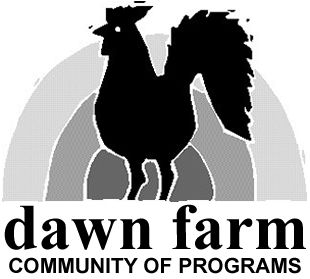
Dawn Farm Addiction and Recovery Education Series
Dawn Farm
The Dawn Farm Education Series is a FREE, annual workshop series developed to provide accurate, helpful, hopeful, practical, current information about chemical dependency, recovery, family and related issues; and to dispel the myths, misinformation, secrecy, shame and stigma that prevent chemically dependent individuals and their families from getting help and getting well. The 2012/2013 series marks the TWENTY-SECOND year of Dawn Farm providing this educational resource for our community!
- 1 hour 11 minutesAddiction and Families - September 2019
“Addiction and Families“ was presented on September 24, 2019; by Dr. Lynn Kleiman Malinoff, Ed.D. Alcohol/other drug addiction is often described as a “family condition.” This program will describe ways in which each family member is affected by addiction in the family, roles and behaviors that family members often acquire when living with addiction, and options for family members to obtain help to cope with addiction in the family.
This program is part of the Dawn Farm Education Series, a FREE, annual education series developed to provide accurate, helpful, hopeful, practical, current information about substance use disorders, recovery, family and related issues. The Education Series is organized by Dawn Farm, a non-profit community of programs providing a continuum of substance use disorder treatment and recovery support services. For information, please see http://www.dawnfarm.org/programs/education-series.
ABOUT THE PRESENTER: Lynn Kleiman Malinoff, Ed.D
Lynn is the director of Eastern Michigan University 21st Century Community Learning Centers Bright Futures out-of-school-time programs. Lynn has worked with challenged youth and their families, teaching, counseling, and leading for over 40 years in K-12 education as well as developing and directing an adolescent outpatient program for substance abusing youth and their families. Lynn has a deep knowledge of the challenges of children of alcoholics, family systems as they relate to addiction and the process of recovery. She is a strong supporter of Twelve-Step recovery.
Lynn received her doctorate in educational leadership from Eastern Michigan University. She co-authored a book chapter published in Women as Leaders in Education (Praeger, 2011), entitled “Both Sides of Mentoring: A Leader’s Story”. She has two grown sons and loving daughters-in-law, a husband and two Shetland Sheepdogs. She is passionate about photography and preparing delicious meals for family and friends.
29 September 2019, 1:50 am - 1 hour 23 minutesDoes Addiction Treatment Work? - September 2019
“Does Addiction Treatment Work?” was presented on September 17, 2019, by Dr Carl Christensen, MD, PhD, D-FASAM. Recent publications claim to define research-supported definitive truths about the root causes of addiction and efficacy of treatment modalities; however, conclusions are conflicting and have been subject to divergent interpretations. Feel confused? Dr. Christensen will review the recent criticisms of treatment for addiction including Twelve Step, residential, and medication assisted therapy, the scientific studies that do and do not support their use and other controversial issues.
This program is part of the Dawn Farm Education Series, a FREE, annual education series developed to provide accurate, helpful, hopeful, practical, current information about substance use disorders, recovery, family and related issues. The Education Series is organized by Dawn Farm, a non-profit community of programs providing a continuum of substance use disorder treatment and recovery support services. For information, please see http://www.dawnfarm.org/programs/education-series.
About the Presenter: Carl Christensen, MD, PhD, FACOG, D-FASAM, cMRO Dr. Christensen obtained his MD and a PhD in Biochemistry at Wayne State University School of Medicine and completed his residency in Obstetrics and Gynecology at Hutzel Hospital. He then completed a Fellowship in Gynecologic Oncology at Duke University Medical Center in 1988. He returned to Wayne State, practicing both Obstetrics and Gynecology and Gynecologic Oncology, and was Associate Residency Director of the OB Gyn Residency until 2012. He retired from WSU in 2012 and continues as a Clinical Associate Professor in the Departments of Psychiatry and OB Gyn. While working with the late Dr. James Wardell, one of the first obstetricians to treat pregnant addicted women, he became certified in Addiction Medicine in 2004 and later Board Certified in Addiction Medicine in 2009. He served as the Medical Director of the Eleonore Hutzel Women’s Recovery Center, founded by Dr. Wardell in 1969, an outpatient program dedicated to caring for pregnant, chemically dependent women from 2004 to 2018, as well as the Medical Director at the Tolan Medical Research Clinic in the Department of Psychiatry at WSU from 2009 to 2018. He continues his work with pregnant chemically dependent women at SJMH in Ann Arbor. He is the past president of the Michigan Society of Addiction Medicine and the current Medical Director of the Michigan Health Professional Recovery Program, which monitors impaired nurses, pharmacists and doctors. He was elected as a Distinguished Fellow of the American Society Addiction Medicine in 2013. He is also the Medical Director for Dawn Farm Treatment Center in Ypsilanti and Ann Arbor, returning to that job when Dr. Pat Gibbons passed in 2014. Dr. Christensen also specializes in the treatment of chronic pain patients who are trying to detox or taper off opioids and works at SJMH at Recovery Specialists. He has received numerous teaching awards. He has been named one of the “Top Docs” in Addiction Medicine in Hour Magazine for 2006 through 2018. Dr. Christensen currently works with the US Attorney’s office, the DEA, and local law enforcement as an expert witness for opioid prescribing cases. He lives in Canton with his wife Cathy, a Nurse Practitioner also specializing in chronic pain and addiction, their therapy dog Olive, and 3 rescue cats.
20 September 2019, 10:21 pm - 1 hour 11 minutesSpirituality in 12 Step Recovery: The Many Paths to Spiritual Fitness - June 2019
“Spirituality in Recovery: The Many Paths to Spiritual Fitness“ was presented on June 25, 2019; by Jerry Fouchey, BS, MA, SpA, CADC; Dawn Farm Personal Medicine Therapist and Didactic Group Facilitator. Spirituality can play an important role in recovery initiation and maintenance. Research has demonstrated that self-identification as a “spiritual” person correlates positively with successful abstinence regardless of whether the person self-identifies as a “religious” person. Twelve Step recovery programs challenge participants through the Eleventh Step to “seek through prayer and meditation to improve their conscious contact with God as they understood Him, praying only for knowledge of His will and the power to carry that out.” The literature points out that recovering people have "tread innumerable paths" in this process. This presentation will encourage participants to clarify their personal understanding of a Higher Power, examine the quality of their relationship with that Power, and explore vehicles to build their conscious contact.
This program is part of the Dawn Farm Education Series, a FREE, annual education series developed to provide accurate, helpful, hopeful, practical, current information about substance use disorders, recovery, family and related issues. The Education Series is organized by Dawn Farm, a non-profit community of programs providing a continuum of substance use disorder treatment and recovery support services. For information, please see http://www.dawnfarm.org/programs/education-series.
ABOUT THE PRESENTER Jerry Fouchey, BS, MA, Sp.A., CADC Jerry Fouchey has extensive experience in the field of education as an administrator, facilitator, strategist, teacher and practitioner in the areas of educational administration, curriculum, instruction and staff development, and has played leadership roles in many initiatives in various public school districts. After several years as a Dawn Farm Spera Recovery Center Counselor and later as an Outpatient therapist, Jerry Fouchey currently serves as a Lifestyle Medicine therapist and didactic group facilitator for Dawn Farm. He earned his BS, MA, and Sp.A. from Eastern Michigan University, has received additional training in substance use disorder prevention and treatment procedures, and is a Certified Alcohol & Drug Counselor (CADC). Jerry was instrumental in the implementation of Dawn Farm’s Dialectical Behavioral Therapy (DBT) and Lifestyle Medicine programs.
30 June 2019, 3:01 pm - 1 hour 18 minutesCoordinating a Community Response to the Opioid Epidemic
“Coordinating a Community Response to the Opioid Epidemic” was presented on June 18, 2019; by Molly Welch Marahar, MPP; WHI Opioid Project Coordinator, Center for Healthcare Research & Transformation; and Carrie Rheingans, MSW, MPH; WHI Project Manager, Center for Healthcare Research & Transformation, and a panel including Marci Scalera, ACSW, LMSW, CAADC, Director of Clinical & SUD Services, Community Mental Health Partnership of Southeast Michigan; Matt Hill, Program Manager, Washtenaw Recovery Advocacy Project, Home of New Vision; and Dr. John Hopper, MD, Addiction Medicine Specialist, St. Joseph Mercy Medical Group.
Opioid overdose was described as an “epidemic” by CDC Director Thomas Frieden in 2011. Since then, this epidemic has had a catastrophic impact on families and placed tremendous strain on communities, and our Southeast Michigan community is no exception. What is being done to change this?
The WHI Opioid Project is a cross sector coalition that was formed to address the opioid crisis in Washtenaw County. The Opioid Project has members from the health systems, local substance use agencies, government, schools, law enforcement, academia and the recovering community who come together to collectively design and implement policy changes to stem the tide of opioid overdose. From Red Barrel Events, to Naloxone trainings, to prevention education in schools, the Opioid Project is the touchpoint for initiatives at all levels of public health intervention, from prevention to treatment to harm reduction to policy advocacy. This program will discuss coordinating a community-level response to the opioid epidemic from a public health perspective, and ways for all to get involved.
This program is part of the Dawn Farm Education Series, a FREE, annual education series developed to provide accurate, helpful, hopeful, practical, current information about substance use disorders, recovery, family and related issues. The Education Series is organized by Dawn Farm, a non-profit community of programs providing a continuum of substance use disorder treatment and recovery support services. For information, please see http://www.dawnfarm.org/programs/education-series.
ABOUT THE PRESENTERS:
Molly Welch-Marahar, BA, MPP
Molly Welch-Marahar is a Policy Fellowship Program Manager at CHRT. She manages CHRT’s Policy Fellowship and provides analysis of issues and trends in healthcare policy.
Before signing on with CHRT, Molly worked in substance use treatment for four years as both a counselor and a Recovery Support Specialist with Dawn Farm in Ann Arbor, MI. She was also an Omen-Darling Health Policy Fellow with Breast Cancer Action in San Francisco, CA where she supported their advocacy with her scholarship. Molly holds a Master of Public Policy from the Gerald R. Ford School of Public Policy at the University of Michigan and a Bachelors of General Studies also from the University of Michigan.
Carrie Rheingans BS, MPH, MSW
Carrie Rheingans is a Project Manager at the Center for Healthcare Research & Transformation (CHRT, pronounced ‘chart’) in Ann Arbor, Michigan. She manages the Washtenaw Health Initiative (WHI) and other community implementation activities through the State Innovation Model and the Michigan Community Health Worker Alliance. Carrie manages the work of more than 200 social and clinical service providers, and manages 15 community-based projects to increase outreach and enrollment into health insurance, and improve access to mental health, substance use, dental, and primary care for low-income residents. As part of her work with the WHI, Carrie helped facilitate the first-ever joint hospital Community Health Needs Assessment and Implementation Plan for three nonprofit hospitals, and she helps implement Michigan’s State Innovation Model in one of the five test regions in the state. Carrie is also an adjunct lecturer in the University of Michigan School of Social Work, teaching courses on health care policy, community organizing, management of human services, and social policy and evaluation. She also serves as a board member for Communities Joined in Action, which is a national membership organization of community coalitions working to improve health in communities across the country.
Carrie is a June 2016 graduate from the Leadership Detroit program at the Detroit Regional Chamber of Commerce, which trains mid-career professionals to be regional leaders. Before her current roles at CHRT and adjunct lecturing, Carrie was a co-founder, the Director of Civic Engagement, and most recently, the Executive Director of Casa Latina, Washtenaw County’s first Latino community center, which existed from 2011 – 2015. Carrie has experience working with the Washtenaw County Public Health Department and Unified, which is the AIDS service organization for ten counties across southeast Michigan. She was an AmeriCorps member with Team Detroit for the national AmeriCorps program on HIV and AIDS in 2008-2009. In addition to these local activities, Carrie has worked with HIV and AIDS organizations in Peru and China, a microfinance organization in Bangladesh, a developmental biology lab in Germany, and conducted youth violence research in South Africa. She worked with the national Campaign to End AIDS as a leader and peer trainer with their Youth Action Institute from 2008-2012.
Carrie holds master’s degrees in public health and community social work from the University of Michigan, and received her bachelor of science there as well. She was born and raised in Michigan, and has spent the last seventeen years based in Washtenaw County.
25 June 2019, 1:15 am - 1 hour 18 minutesIntervention to Durable Recovery: The Power of Family - April 2019
“Intervention to Durable Recovery: The Power of Family” was presented on April 16, 2019, by Debra Jay (with the first section of the audio presented by Jeff Jay in a previous presentation on November 21, 2017.)
Addiction is often described as a “family condition” – but families have often been left out of the recovery equation. Involved, supportive families play a critical role in the recovery process, from initiation through long-term recovery, and families provide an important reservoir of influence and support towards making lasting sobriety a reality. Through extensive work in intervention and family recovery, Debra Jay and Jeff Jay have developed highly effective, detailed Intervention and Structured Family Recovery™ processes that unlock the secrets of lasting sobriety – techniques that help addicted physicians and pilots attain lasting recovery - and make them available to families. The intervention process starts with a concerned family and the Structured Family Recovery™ process ends with a family recovery team that maximizes the potential for a successful outcome for all involved. This presentation will describe how to do an intervention and how to build a recovery team that unites the person with addiction and his/her family in working towards the common goal of sustained recovery. The presentation will provide practical, helpful, hopeful information about intervention and family recovery that will both revolutionize recovery and bring recovery back to its roots. This program is part of the Dawn Farm Education Series, a FREE, annual education series developed to provide accurate, helpful, hopeful, practical, current information about substance use disorders, recovery, family and related issues. The Education Series is organized by Dawn Farm, a non-profit community of programs providing a continuum of substance use disorder treatment and recovery support services. For information, please see http://www.dawnfarm.org/programs/education-series.
ABOUT THE PRESENTERS: Debra Jay and Jeff Jay Debra and Jeff Jay are best-selling authors, speakers and clinicians. Their best-selling book "Love First: A Family’s Guide to Intervention" has helped thousands of families to help their loved one initiate recovery, and Debra’s new book “It Takes A Family” is helping families come together to form a recovery team that maximizes the potential for a successful outcome for all involved. Jeff's most recent book, “Navigating Grace," recounts a gripping journey through perilous ocean waters and through his own soul to finding hope and serenity. Jeff and Debra have a national private practice that provides clinical services and training, including Intervention and Structured Family Recovery. For more information please see their Love First web site: https://lovefirst.net/.
25 May 2019, 2:32 am - 1 hour 19 minutesBarking to the Choir: The Power of Radical Kinship
“Barking to the Choir: The Power of Radical Kinship” was presented on April 30, 2019, by Gregory Boyle; founder of Homeboy Industries and best-selling author. Gregory Boyle is the founder of Homeboy Industries in Los Angeles, California, the largest gang intervention, rehabilitation, and re-entry program in the world. A Jesuit priest, from 1986 to 1992 Father Boyle served as pastor of Dolores Mission Church, then the poorest Catholic parish in Los Angeles that also had the highest concentration of gang activity in the city. Father Boyle witnessed the devastating impact of gang violence on his community during the so-called “decade of death” that began in Los Angeles in the late 1980s and peaked at 1,000 gang-related killings in 1992. In the face of law enforcement tactics and criminal justice policies of suppression and mass incarceration as the means to end gang violence, Father Boyle and parish and community members adopted what was a radical approach at the time: treat gang members as human beings. In this presentation, Gregory Boyle will share how compassion, kindness, and kinship are the tools to fight despair and decrease marginalization. Through his stories and parables, all will be reminded that no life is less valuable than another. This program is part of the Dawn Farm Education Series, a FREE, annual education series developed to provide accurate, helpful, hopeful, practical, current information about substance use disorders, recovery, family and related issues. The Education Series is organized by Dawn Farm, a non-profit community of programs providing a continuum of substance use disorder treatment and recovery support services. For information, please see http://www.dawnfarm.org/programs/education-series. About the presenter:
Gregory Boyle is the founder of Homeboy Industries in Los Angeles, Calif., the largest gang intervention, rehabilitation, and re-entry program in the world.
A Jesuit priest, from 1986 to 1992 Father Boyle served as pastor of Dolores Mission Church, then the poorest Catholic parish in Los Angeles that also had the highest concentration of gang activity in the city.
Father Boyle witnessed the devastating impact of gang violence on his community during the so-called “decade of death” that began in Los Angeles in the late 1980s and peaked at 1,000 gang-related killings in 1992. In the face of law enforcement tactics and criminal justice policies of suppression and mass incarceration as the means to end gang violence, Father Boyle and parish and community members adopted what was a radical approach at the time: treat gang members as human beings.
In 1988 they started what would eventually become Homeboy Industries, which employs and trains former gang members in a range of social enterprises, as well as provides critical services to thousands of men and women who walk through its doors every year seeking a better life.
Father Boyle is the author of the 2010 New York Times-bestseller Tattoos on the Heart: The Power of Boundless Compassion. His 2017 book is the Los Angeles Times-bestseller Barking to the Choir: The Power of Radical Kinship.
He has received the California Peace Prize and been inducted into the California Hall of Fame. In 2014, the White House named Father Boyle a Champion of Change. He received the University of Notre Dame’s 2017 Laetare Medal, the oldest honor given to American Catholics.
6 May 2019, 2:58 am - 1 hour 19 minutesPeople Like Me: Mutual Aid and Recovery from Substance Use Disorders - April 2019
“People Like Me: Mutual Aid and Recovery from Substance Use Disorders” was presented on April 23, 2019; Todd Diana, Dawn Farm staff, and a five-member panel. Since the 1700’s people have banded together to help each other recover from substance use disorders. Today, people seeking peer support for recovery from substance use disorders, as well as family members and friends of people with substance use disorders, have an expansive menu of mutual aid groups they can participate in. Research demonstrates that active involvement in mutual aid recovery groups significantly improves a person’s chances of long-term recovery and supports the effectiveness and practical impact of mutual aid groups. For people seeking recovery support, mutual aid groups often provide a sense of belonging, understanding, acceptance and connection as well as practical help and support. This presentation will provide an overview of the history, development and current status of mutual aid recovery programs in the USA, and the research supporting the efficacy of mutual aid participation in supporting sustained recovery. The program will include a panel discussion by members of a sampling of substance use disorder recovery mutual aid programs. (Please note: Dawn Farm is not affiliated with any recovery mutual aid program or group.)
This program is part of the Dawn Farm Education Series, a FREE, annual education series developed to provide accurate, helpful, hopeful, practical, current information about substance use disorders, recovery, family and related issues. The Education Series is organized by Dawn Farm, a non-profit community of programs providing a continuum of substance use disorder treatment and recovery support services. For information, please see http://www.dawnfarm.org/programs/education-series.
About the presenter: Todd Diana Todd Diana has been a member of Dawn Farm's staff since 2013. He has worked in several capacities at Dawn Farm--as a Detox Counselor, Group Facilitator, Administrative Assistant, and Recovery Support Specialist. Todd has lived in Michigan since 1984, when he moved back to Ann Arbor to attend graduate school. He'd completed his BA in History at the University of Washington, and it was while living in Seattle that Todd was first introduced to Alcoholics Anonymous, to Narcotics Anonymous, to Al-Anon, and to various other recovery groups and programs. He is an alumni of Dawn Farm and an active member of the local recovery community.
27 April 2019, 3:19 am - 1 hour 28 minutesGrief and Loss in Addiction and Recovery - March 2019
“Grief and Loss in Addiction and Recovery” was presented on March 26, 2019; by Jerry Fouchey, BS, MA, SpA, CADC; Dawn Farm Personal Medicine Therapist and Didactic Group Facilitator; and Barb Smith, author of “Brent’s World.” Unresolved grief and loss frequently accompany people throughout the process of moving from the culture of addiction to the culture of recovery. Families of people with addiction experience grief and loss as well. This program will explain various theories of grief and grief recovery, describe losses that people with substance use disorders and their families experience throughout the addiction and recovery processes, and discuss how recovery program tools can help individuals cope with grief and loss. The presentation will include a powerful personal story of grief, loss and recovery.
This program is part of the Dawn Farm Education Series, a FREE, annual education series developed to provide accurate, helpful, hopeful, practical, current information about substance use disorders, recovery, family and related issues. The Education Series is organized by Dawn Farm, a non-profit community of programs providing a continuum of substance use disorder treatment and recovery support services. For information, please see http://www.dawnfarm.org/programs/education-series.
ABOUT THE PRESENTERS:
Jerry Fouchey, BS, MA, Sp.A., CADC
Jerry Fouchey has extensive experience in the field of education as an administrator, facilitator, strategist, teacher and practitioner in the areas of educational administration, curriculum, instruction and staff development, and has played leadership roles in many initiatives in various public school districts. After several years as a Dawn Farm Spera Recovery Center Counselor and later as an Outpatient therapist, Jerry Fouchey currently serves as a Personal Medicine therapist and didactic group facilitator for Dawn Farm. He earned his BS, MA, and Sp.A. from Eastern Michigan University, has received additional training in substance use disorder prevention and treatment procedures, and is a Certified Alcohol & Drug Counselor (CADC). Jerry was instrumental in the implementation of Dawn Farm’s Dialectical Behavioral Therapy (DBT) and Personal Medicine programs.
Barb Smith
Barb Smith is the author of “Brent’s World,” a book about the life and death of her oldest son. Barb is a frequent speaker at community, school and church functions.
31 March 2019, 3:01 pm - 1 hour 15 minutesDoes Addiction Treatment Work?
“Does Addiction Treatment Work?” was presented on March 19, 2019; by Carl Christensen, MD, PhD, D-FASAM. Recent publications claim to define research-supported definitive truths about the root causes of addiction and efficacy of treatment modalities; however, conclusions are conflicting and have been subject to divergent interpretations. Feel confused? Dr. Christensen will review the recent criticisms of treatment for addiction including Twelve Step, residential, and medication assisted therapy, the scientific studies that do and do not support their use and other controversial issues. The presentation will include a short discussion of naloxone (Narcan) resuscitation.
Dr. Christensen obtained his MD and a PhD in Biochemistry at Wayne State University School of Medicine and completed his residency in Obstetrics and Gynecology at Hutzel Hospital. He then completed a Fellowship in Gynecologic Oncology at Duke University Medical Center in 1988. He returned to Wayne State, practicing both Obstetrics and Gynecology and Gynecologic Oncology, and was Associate Residency Director of the OB Gyn Residency until 2012. He retired from WSU in 2012 and continues as a Clinical Associate Professor in the Departments of Psychiatry and OB Gyn. While working with the late Dr. James Wardell, one of the first obstetricians to treat pregnant addicted women, he became certified in Addiction Medicine in 2004 and later Board Certified in Addiction Medicine in 2009. He served as the Medical Director of the Eleonore Hutzel Women’s Recovery Center, founded by Dr. Wardell in 1969, an outpatient program dedicated to caring for pregnant, chemically dependent women from 2004 to 2018, as well as the Medical Director at the Tolan Medical Research Clinic in the Department of Psychiatry at WSU from 2009 to 2018. He continues his work with pregnant chemically dependent women at SJMH in Ann Arbor. He is the past president of the Michigan Society of Addiction Medicine and the current Medical Director of the Michigan Health Professional Recovery Program, which monitors impaired nurses, pharmacists and doctors. He was elected as a Distinguished Fellow of the American Society Addiction Medicine in 2013. He is also the Medical Director for Dawn Farm Treatment Center in Ypsilanti and Ann Arbor, returning to that job when Dr. Pat Gibbons passed in 2014. Dr. Christensen also specializes in the treatment of chronic pain patients who are trying to detox or taper off opioids and works at SJMH at Recovery Specialists. He also sees chemically dependent patients at Packard Health in Ann Arbor. He has received numerous teaching awards. He has been named one of the “Top Docs” in Addiction Medicine in Hour Magazine for 2006 through 2018. Dr. Christensen currently works with the US Attorney’s office, the DEA, and local law enforcement as an expert witness for opioid prescribing cases. He lives in Canton with his wife Cathy, a Nurse Practitioner also specializing in chronic pain and addiction, their therapy dog Olive, and 3 rescue cats.
This program is part of the Dawn Farm Education Series, a FREE, annual education series developed to provide accurate, helpful, hopeful, practical, current information about substance use disorders, recovery, family and related issues. The Education Series is organized by Dawn Farm, a non-profit community of programs providing a continuum of substance use disorder treatment and recovery support services. For information, please see http://www.dawnfarm.org/programs/education-series.
31 March 2019, 4:09 am - 52 minutes 59 secondsDispelling Myths about Smoking, Mental Health/Substance Use Disorders and Recovery - February 2019
“Dispelling Myths about Smoking, Mental Health/Substance Use Disorders and Recovery” was presented on February 19, 2019; by Rosemary Bak Lowery, MS, CHES®, CNP, ACSM-CPT; Certified Health Education Specialist. Adults with mental illness, including substance use disorder (SUD,) are at risk of dying 25 years earlier than the general population. The major contributor to this premature mortality is smoking-related disease. While cigarette smoking has trended downward in recent years, it is still highly prevalent in adults with mental health and/or substance use disorder (MH/SUD). Why is this so? Recent research has suggested that the biggest issue lies with the many common myths and misperceptions about the relationship between smoking, MH/SUD and recovery. This program will shed light on popularly-cited “facts” about smoking, reinforced by both consumers and care professionals alike. Viewers will gain a deeper understanding of the extent of this public health problem and understand how they can be a part of the solution. People struggling to quit, or afraid to try because of a fear of adverse consequences, may gain hope as they learn about the true relationship between smoking and MH/SUD. The fact of the matter is: People with MH/SUD can quit smoking, and when they do, they experience improved mental health and greater success in SUD recovery.
This program is part of the Dawn Farm Education Series, a FREE, annual education series developed to provide accurate, helpful, hopeful, practical, current information about substance use disorders, recovery, family and related issues. The Education Series is organized by Dawn Farm, a non-profit community of programs providing a continuum of substance use disorder treatment and recovery support services. For information, please see http://www.dawnfarm.org/programs/education-series.
ABOUT THE PRESENTER: Rosemary Bak Lowery, MS, CHES®, CNP, ACSM-CPT; Certified Health Education Specialist.
Rosemary (a.k.a. "Rose," or "Rosie") is a Certified Health Education Specialist who completed her Master of Science degree in Community Health Education at Eastern Michigan University. She has been working in the Health, Fitness, and Wellness industry for the past decade, with much of her experience being in program development, one-on-one coaching, and group instruction. She has worked in wellness promotion at the YMCA, EMU, and University of Michigan. "Past lives" in the professional realm have included corporate communications and satellite broadcasting, as well as directing and performing with a local dance troupe. Along with her passion for health promotion, she brings in-depth personal experience and academic knowledge of mental health issues, substance use disorder and recovery. In 2015, she was proud to publish her first academic article in The Health Education Monograph, “Using Technology to Help Individuals with Co-Occurring Disorders: A Dialectical Behavior Therapy Intervention Informed by the Transtheoretical Model,” wherein she proposed a novel mode to address drug addiction and symptoms of mental illness in a personalized, confidential manner. She lives peacefully (and sometimes hilariously) in Wayne County with her husband, her beloved kitty-cat, and her phenomenal baby boy.
24 March 2019, 3:06 pm - 1 hour 22 minutesCo-Occurring Eating Disorders and Addiction: Implications for Recovery by Tiffany Schultz – February 2019
“Co-Occurring Eating Disorders and Addiction: Implications for Recovery” was presented on February 26, 2019; by Tiffany Schultz, LLMSW; Dawn Farm Outpatient Therapist. Co-occurring Eating Disorders and Substance Use Disorders often converge in several complex ways. We know that addiction to substances is a primary, chronic, and fatal disease if left untreated; research also tells us that when these two disorders co-occur, treating them simultaneously is the best course of action for the individual seeking help, and that long-term recovery from both disorders is possible. However, finding a program able to treat both conditions effectively is challenging. This presentation will explore the ways in which these two very serious conditions intersect and how those intersections impact the course of treatment and recovery for the individual.
This program is part of the Dawn Farm Education Series, a FREE, annual education series developed to provide accurate, helpful, hopeful, practical, current information about substance use disorders, recovery, family and related issues. The Education Series is organized by Dawn Farm, a non-profit community of programs providing a continuum of substance use disorder treatment and recovery support services. For information, please see http://www.dawnfarm.org/programs/education-series.
ABOUT THE PRESENTER: Tiffany Schultz, LLMSW; Dawn Farm Outpatient Therapist
Tiffany is a Social Worker with a BSW from Eastern Michigan University (2016) and an MSW from Wayne State University (2017). Her educational focus in undergraduate and graduate school was on Mental Health and Substance Use Disorders, with a particular focus in graduate school on Cognitive Behavioral Therapy. During her academic career, Tiffany interned with the Washtenaw County Community Mental Health, working with adults with developmental disabilities. Tiffany became an intern at Dawn Farm Spera Recovery Center in September 2015, and since then has had the opportunity to work in various Dawn Farm positions. Currently, Tiffany is working as an Outpatient Therapist with Dawn Farm. Her passion for work in the addictions field has been coupled with an interest in eating disorders since the start of her work at Dawn Farm, encountering innumerable clients with co-occurring disorders and working to assist those clients in achieving stable, long-term recovery from both disorders.
17 March 2019, 1:42 am - More Episodes? Get the App
Your feedback is valuable to us. Should you encounter any bugs, glitches, lack of functionality or other problems, please email us on [email protected] or join Moon.FM Telegram Group where you can talk directly to the dev team who are happy to answer any queries.
 Opiate recovery podcast
Opiate recovery podcast
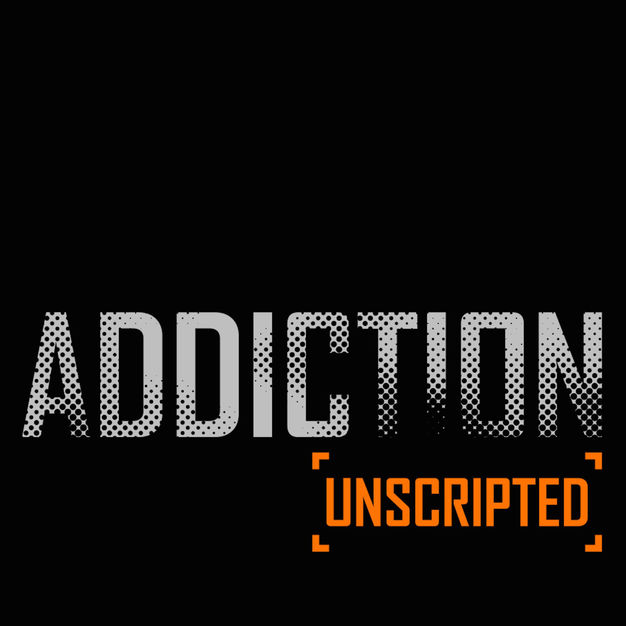 Addiction Unscripted Podcast
Addiction Unscripted Podcast
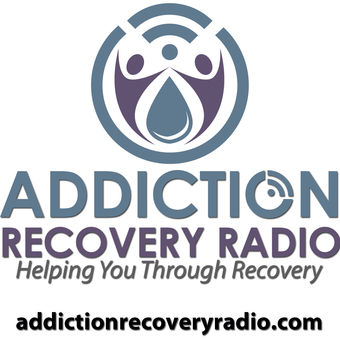 "Addiction Recovery Radio"
"Addiction Recovery Radio"
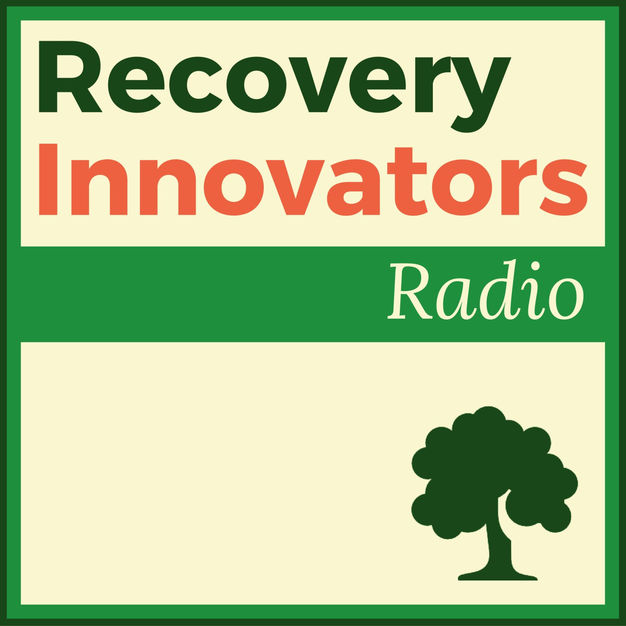 Recovery Innovators Radio
Recovery Innovators Radio
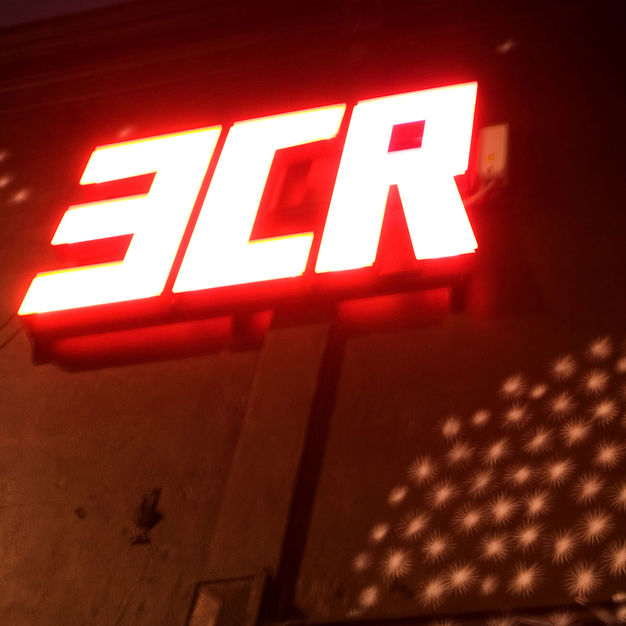 Living Free
Living Free
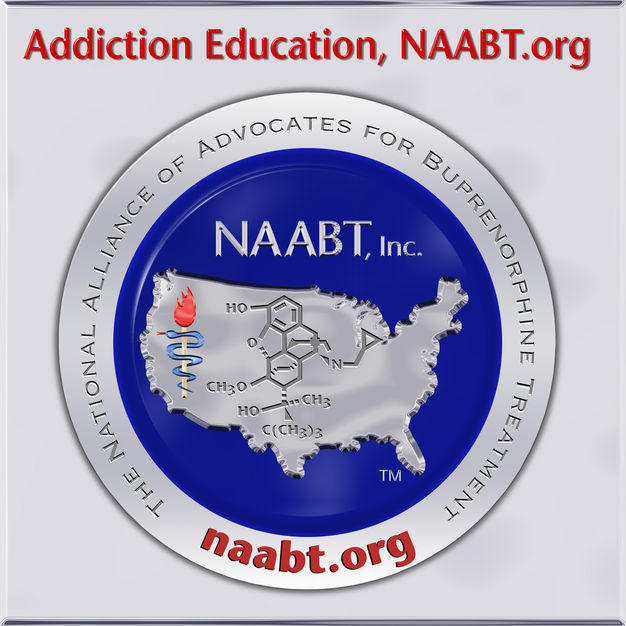 Addiction Education
Addiction Education